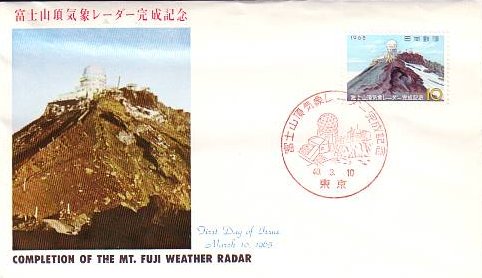
The Meiji Era: 1867-1911
Feudal lords were abolished along with feudal social ranks. A national army and conscription system, new tax system, decimal coinage, mailing, telephone and telegraph systems all were-established. Modern industry began during this period, starting out with government-owned industries but shifting to private industries.
Trade relations were established with Korea and China. The ban on Christianity was repealed and a National Diet was started but at first it had little real power. Although the Japanese win the Sino-Japanese War, Russia, Germany and France force Japan to give up some of the territories it won.
Gradually light and then heavy industry got going and before long Japan was producing its own large ships and locomotives.
Particular dates of importance
1868: "Meiji Restoration"
1868:The new government orders the separation of Buddhism and Shinto.
1868: Edo is renamed Tokyo.
1869: Tokyo becomes the capital (some works list this as in 1868)
1869: Final pro-Tokugawa forces surrender, ending the Boshin Civil War.
1869: Daimyo return lands to the Emperor.
1869: Government abolishes traditional status groups, reorganizes people into nobility, ex-samurai and commoners.
1870: Bread is publicly sold in bakeshops opening in Yokohama and Tokyo. Ice cream is sold in Yokhoama and the first Western-style restaurant opens, also in Yokohama.
1870: Telegraph service between Tokyo and Yokohama is started
1871: Prefecture system is established
1871: The Yen is established as the national currency.
1871: The Ministry of Education is established
1871: The Emancipation Proclamation is issued, reclassifying outcasts as ordinary citizens. Use of the terms eta and binin are prohibited.
1872: Compulsory elementary education is started; Tokyo-Yokohama railway opened. Japan's first mass-production spinning mill opens.
1872: Japan annexes the kingdom of Ryukyu which becomes the prefecture of Okinawa.
1872: Japan adopts the Gregorian calendar
1872:Ainu lands are taken and redistributed to Japanese settlers.
1873: The first railway in Japan opens between Shimbashi and Yokohama. The Emperor tries beef, and the first Western-style restaurant opens in Tokyo.
1873: Universal conscription is adopted. The Land Tax Reform Law is passed, and the First National Bank is chartered.
1873: The Emperor states that he opposes proposals to invade Korea.
1873: Burakumin communities on Ikayama Prefecture are attacked by villagers. 29 people are killedand300 homes destroyed.
1875: Japan-Russia treaty signed giving Sakhalin to Russia and the Kurile Islands to Japan
1876: Japan signs treaty of friendship with Korea with the terms very friendly towards Japan. The first private commercial bank is established.
1876: Samurai are denied the right to carry swords.
1877: The last revolt of the samurai class is quelled.
1877: Tokyo University is established.
1878: The first Japanese winery opens.
1879: Ryukyu Islands are incorporated into Japan as Okinawa Prefecture.
1881: Ministries of Agriculture and Commerce are established
1882: Bank of Japan is established.
1885: Japan's first Cabinet is formed.
1885: Women factory workers at Amamiya Silk Reeling Company walk off their jobs to protest male supervisors showing favoritism towards pretty women and treating the ones not considered pretty harshly.
1886: The first "station box lunchs" are sold and such lunches continue being sold today.
1886: Women workers again walk out, this time protesting management's plan to reduce wages and add work time (at the same time). Negotiations follow and the women and the management reach an accord.
1887: Five hundred plus political activists are expelled from Tokyo.
1889: Japan's first constitution
1889: The first shop specializing in coffee opens in Tokyo.
1894-1895: Sino-Japanese war which Japanese win.(starts on July 25, 1894).
1890: Parliamentary government inaugurated. First general elections are held. The Constitution goes into effect as the First Diet is opened by the Emperor.
1894:Japan formally declares war on China.
1895: Japan and China sign the Treaty of Shimonoseki.
1896: The first industrial strike in Japan is launched at Amamiya filature by women.
1898: The bacteria that causes dysentery is discovered by a Japanese bacteriologist.
1900: Shintoism is reinstated to counter Buddhist influence
1900:The first medical college for women is established.
1902: Anglo-Japanese Alliance signed. This recognizes the independence of China and Korea.
1903: Japan's first permanent movie theater opens in the Asakusa district of Tokyo.
1904: Japanese Navy attacks Russian ships near Port Arthur, then war is declared against Russia.
1905: Japanese forces take Port Arthur;Japanese Navy defeats Russian fleet in Battle of Tsushima. Tsushima.. Peace treaty signed on April 17, 1895. Korea becomes a Japanese protectorate.
1905: The first women's magazines start publication.
1910: Japan officially annexes Korea.
1911: A series of treaties such as the Commerce and Navigation Treaty are signed with the Western powers.

|